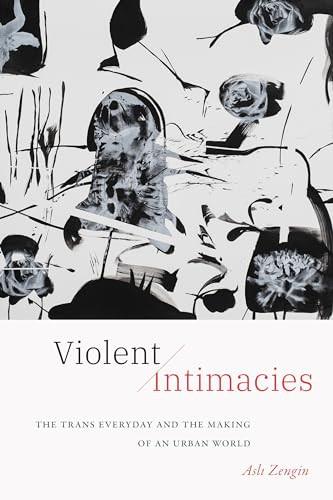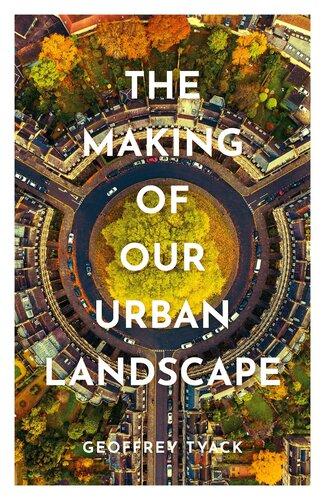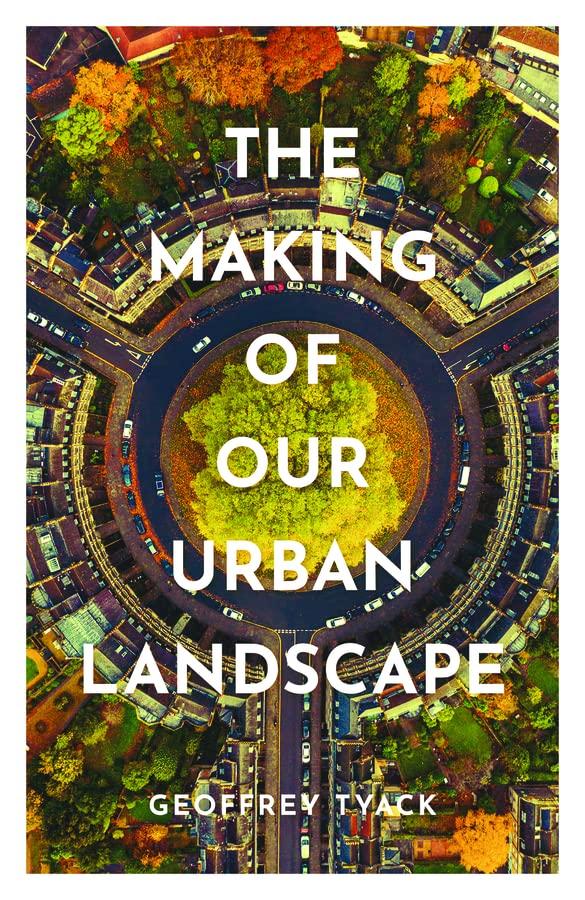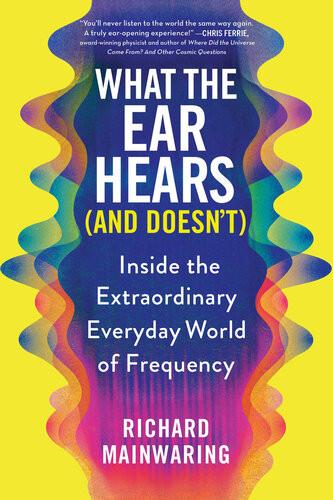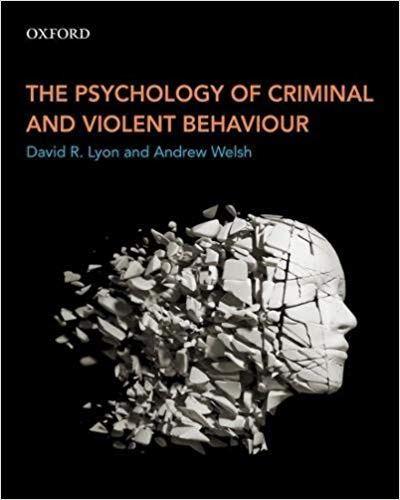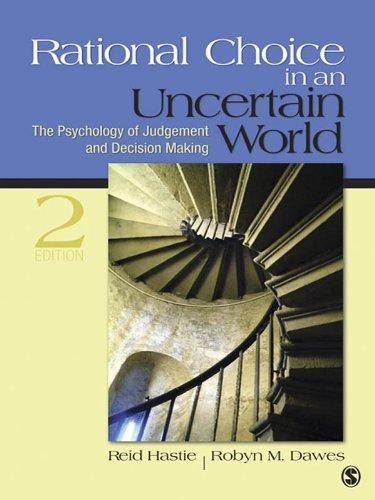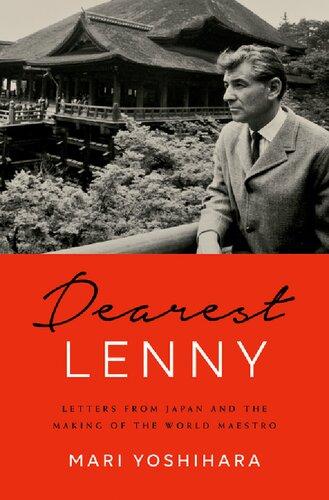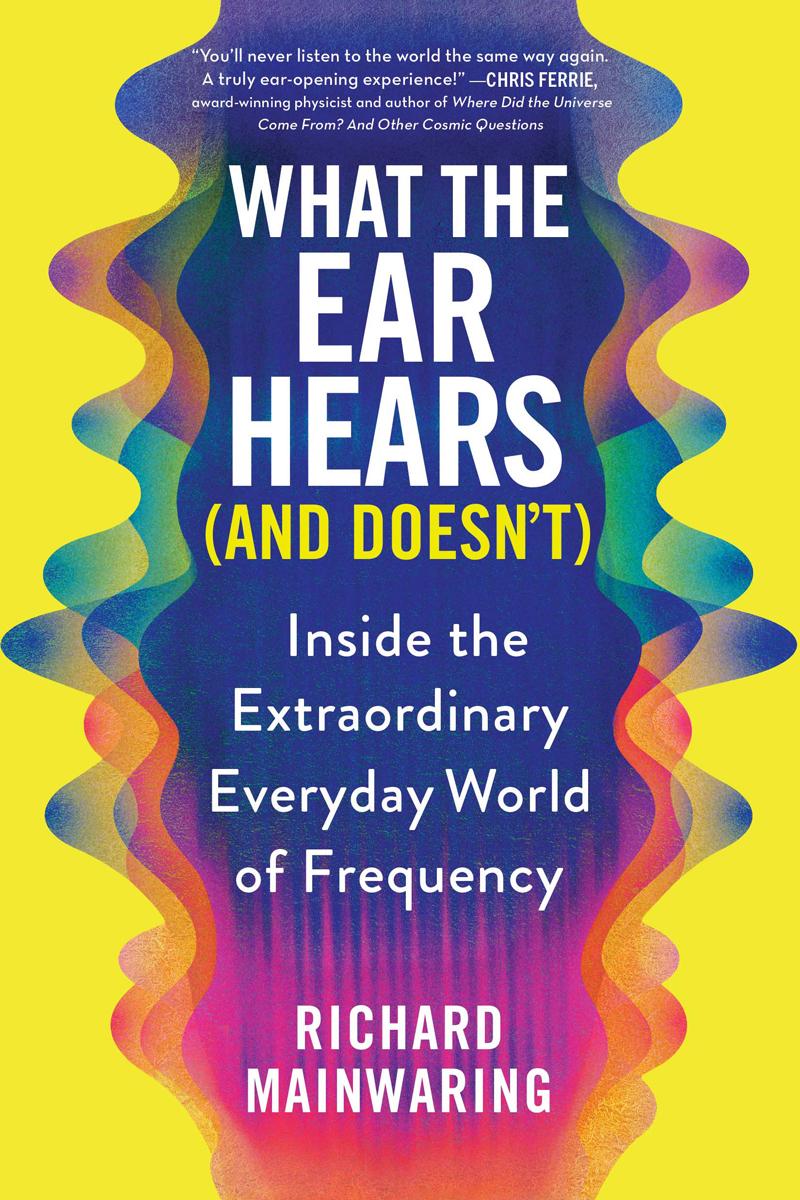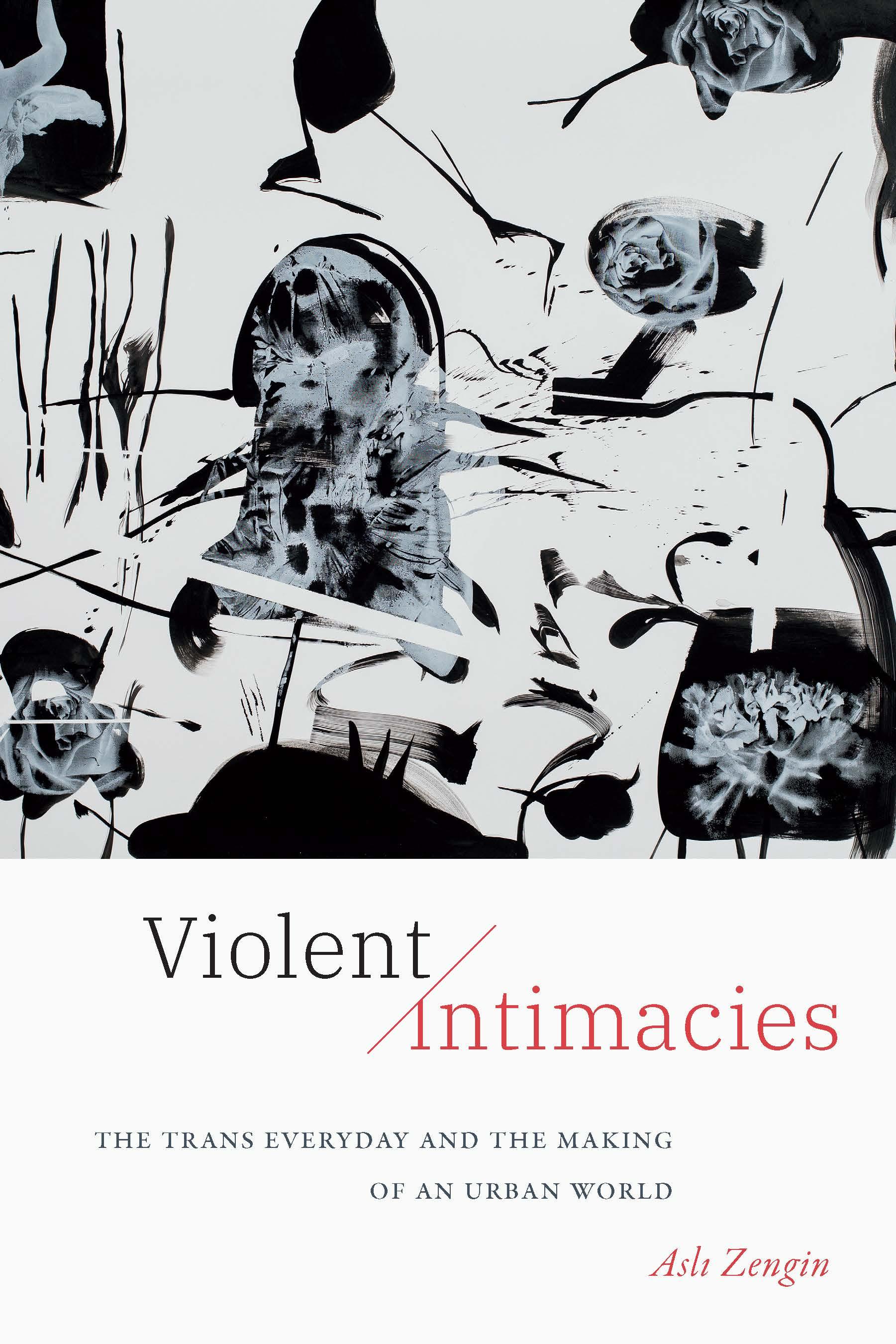Preface
This book begins with a dilemma we all share: time. This dilemma is not personal but rather structural and intrinsic to social scientific methods and, in the par ticular case of this book, to ethnography itself. Ethnography, more or less, claims to keep its finger on the pulse of the present, the contemporary. But there is always a gap between ethnographic research and the time of its fruition into a book. Ethnographic time is not writing time, and neither ethnographic nor writing time is publishing time. Ethnographic accounts of the present inescapably betray their initially intended temporal framework. Instead of accounts of the present, they become archives of the contemporary.
The protagonists of this book, trans people in Turkey, are no exception to this ethnographic dilemma. Much has changed in Turkey between the time of my main fieldwork in 2010 and the writing of this preface in 2022. Therefore, this ethnography of trans lives in Turkey actually offers a contemporary history of transness in the country. The experiences, struggles, and stories from more than a decade ago still weigh heavi ly on the present and emergent conditions of trans lives. Yet this historical proximity can sometimes feel like distance when one considers the events and processes that have radically shifted the geo and sociopolitical context of Turkey over the same period of time. It would be challenging to offer a comprehensive portrayal of all this change in its multiple and differential scales. Instead, I will highlight a few of these key events and processes: the launching of Twitter in 2011 and the gradual growth of other digital platforms; the Gezi protests in 2013; the 2015 general elections and the proceeding war against Kurds in Kurdistan; the coup attempt in 2016; a series of purges of Fethullah Gülen’s supporters, Kurdish politicians and activists, and Academics for Peace; a rapid and exponential increase in migration from the wartorn geographies of Syria, Iraq, Afghanistan, and, more recently, from Ukraine and Russia; the covid 19 pandemic; an aggressive, interventionist and neo imperial foreign policy in the Middle East; and an accelerating economic crisis and hyperinflation that began in 2021. The intensifying authoritarianism, national securitization, and an economic depression have had tremendous and devastating impacts on queer and
trans lives, precisely because they have shaped the everyday life of everyone who lives in Turkey.
Within the specific context of queer and trans lives, this turbulent social and political environment has produced particularly harmful public discourses and acts of vio lence and discrimination. The year 2015 marked the inception of gradually intensifying state warfare against queer and trans lives and their demonization in the public eye through ideological and practical instruments. Since then, the state has steadily developed a more systemic and official antilgbti + agenda and framed it through a discourse of national security, family values, public morals, and social order. The state has banned political events, campaigns, and activities regarding queer and trans issues, and has targeted those of us who were part of these strug gles— claiming that we are threats to public decency and social order.
Two political events in 2021 amplified the gradual targeting, securitization, and criminalization of queer and trans activists and feminists by the Turkish state: feminist, queer, and trans protests against Turkey’s withdrawal from the Istanbul Convention on March 20; and the Boğaziçi University student protests that began on February 2. These two events happened around the same time, heightened the visibility and recognition of lgbti + issues, and also consolidated collaborations and alliances between some feminists and queer and trans activists.
The Istanbul Convention, which is formally the Convention on Preventing and Combating Vio lence against Women and Domestic Violence, was signed in Istanbul in 2011. Turkey was the first state to ratify the convention, in 2012, followed by thirtythree other countries. The treaty advocates for a more comprehensive and holistic understanding of gender violence. It approaches gender violence not as an individual issue but rather as a political one, as a systemic problem permeating every sphere of life. Signatory states of the Istanbul Convention are legally bound to punish perpetrators, as well as to prevent violence and protect victims. The convention also stresses the protection of victims from vio lence based on their sexual orientation and gender identification, deploying the concepts of “gender as a social construct” and “sexual orientation.” It is this specific emphasis that the Turkish government and its allies exploited to organize a smear campaign against the treaty, demonizing it for its inclusion of queer and trans people. Opponents of the convention argued that the treaty encouraged people to “become lgbti +” and encouraged women to divorce, both of which were politically promulgated as contradicting the so called Turkish family structure and its values. For instance, the state Directorate
of Communications officially stated, “The Istanbul Convention, originally intended to promote women’s rights, was hijacked by a group of people attempting to normalize homosexuality—which is incompatible with Türkiye’s social and family values.” 1 Several state officers, including the minister of the interior, Süleyman Soylu, started labeling lgbti + people as “perverts” and “threats to our children” through their official social media accounts and public speeches. And this antilgbti + position was not unique to Turkey. The growing rightwing authoritarianisms across the globe in countries such as the United States, Brazil, and India effectively used antilgbti + agendas to consolidate their power and international alliances with each other. In the meantime, the Middle Eastern countries of Egypt, Lebanon, and Qatar gradually invested in the growth of a more systemized antiqueer stance that led to a series of bans and crackdowns on queer activities, places, and signage. A lethal consequence of this panic was the suicide of a prominent Egyptian communist and queer activist, Sarah Hijazi, who was arrested and tortured by the Egyptian government for raising a rainbow flag at the 2017 Cairo concert of the Lebanese rock band Mashrou’ Leila, whose lead singer was openly queer. Later, Sarah Hijazi was granted asylum in Canada, where she took her own life. Her death shook not only the broader queer Arab world with great sorrow and grief but also queer people in Turkey, leading to her mourning on several online platforms.
This systemic growth in antilgbti + government politics in the Middle East was accompanied by the rise of rightwing governments in eastern Europe and northern Asia, specifically those of Poland, Hungary, Romania, Bulgaria, and Russia. Within this context of the transcontinental coalescence of an anti lgbti + policies and sentiments, Turkey increased its violent pressure on queer and trans lives and denounced the Istanbul Convention in 2021. In response to Turkey’s withdrawal, senior government members announced that they would tackle domestic vio lence through judicial reform. They would write an Ankara Convention that would claim its power from “Turkish traditions and customs.”
In response to the withdrawal, feminist, queer, and trans movements organized around the slogan “The Istanbul Convention saves lives.” They took to the streets and social media to insist that women’s lives and gender violence matter. The withdrawal meant the weakening of legal measures to prevent violence and femicides, thus encouraging perpetrators. At the time of the withdrawal, femicides and hate crimes in Turkey were in fact on the rise. In the context of the covid 19 restrictive measures in Turkey, the risk
of domestic violence against women, queers, trans people, and children increased. There was indeed a growing need for more, and not fewer, tools to prevent and eradicate gender violence in all its forms. However, state officials have ignored this need and have instead endorsed public circulation of hatred for women, queers, and trans people on social media and beyond.
The student protests at Boğaziçi University, my alma mater, constituted the second important political event that contributed to an antilgbti + environment in Turkey. Boğaziçi is a prominent public institution recognized for its liberal democratic campus life. It has historically been an institutional home for critical and creative thinking and innovative research in Turkey and abroad. It is one of the rare remaining public spaces for encounters among students who come from all walks of life regardless of class, ethnic, religious, sexual, and gender differences. Especially for firstgeneration university graduates like me, who moved to Istanbul from more conservative urban and rural environments in Turkey, Boğaziçi was a radically transformative and lifechanging place.
Boğaziçi’s democratic campus culture and critical education have long been targeted by the Adalet ve Kalkıma Partisi (akp; Justice and Development Party) government and Recep Tayyip Erdoğan’s presidency. Until the coup attempt in 2016, university rectors, who occupy roles similar to university presidents in the United States, used to be demo cratically elected by faculty members, and then the president would be legally bound by the election results when deciding on the appointment. After the coup attempt, statutory decrees changed this procedure. The electoral process has been removed, and today rectors are directly appointed by the Turkish president. Furthermore, the Boğaziçi rector had always been someone from that university community. But as of 2020, rectors and deans from outside Boğaziçi have been imposed on the university by the Turkish president and, in the case of deans, by the rector who is also appointed by the Turkish president. These top down decisions have disrupted the democratic culture on campus and have galvanized both faculty members and students, who have been protesting for almost two years. On the first day of the protest, a queer woman student climbed up on the main gate and waved a rainbow flag against a sea of police officers blocking the entrance to the campus. In response, the university was placed under siege by the state’s security forces. Student protests were harshly repressed by police violence and threats of torture while in custody. Kurdish queer and trans students were particularly targeted for arrests and physical attacks. Protesters were
detained for simply carrying or waving a rainbow flag. The rainbow flag gained a semicriminal status during these protests.
Even though neither being queer nor being trans is illegal in Turkey, the state has turned to and mobilized extralegal instruments to demonize lgbti + activists and certain feminist groups and to separate their political strug gles from each other as well as from other oppositional groups. The state security and legal forces have intensified their capacities to criminalize lgbti + people, single them out as the criminal or “terrorist” type, and hence divide the co alitions of dissidents. The rainbow flag became a defacto semiillegal flag during these protests. Currently, the police search for rainbow flags in protesters’ backpacks and purses at every entry point to a political demonstration. Protesters have been detained for simply carrying or waving a rainbow flag. At student hearings, judges started asking with impunity whether the defendant was a lgbti + person. During the Istanbul Pride March of June 2022, 373 protesters were detained. While in police custody, the protestors were handcuffed behind their backs and forced to stay in detention vehicles for several hours in that position—many considered this an experience of torture. The police also attacked lawyers when they showed up to defend those demonstrators being held in custody. Five lawyers worked into the early morning to legally support 373 people, making sure to be present at their hearings on a voluntary basis. The lawyers themselves were abandoned by the Istanbul bar in spite of their calls for more legal support from fellow lawyers.
This statebacked institutional warfare was further augmented with the countrywide coordination of several civil society groups under the banner of “the Great Family Gathering” in 2022. On September 18, as many as 150 nongovernmental organizations coordinated a march in Fatih, a central conservative neighborhood in Istanbul, to stand against, as they noted, “the increasing lgbti + propaganda and imposition in Turkey.” Fundamentalist religious groups stood side by side with ultrasecularist and nationalist ones, collectively calling on the state to ban all lgbti + groups and activities, including queer and trans content on Netflix and other digital platforms; to penalize people who publicly advocated for lgbti + issues; and to force lgbti + people from Turkey to migrate abroad. The state, through its broadcasting regulator, the Radyo ve Televizyon Üst Kurulu (the Radio and Television Supreme Council), officially approved the rally’s call for screening on popular tv channels. The petition campaign, “Protect your family and generation from perversity,” received thousands of signa
tures. Other cities followed Istanbul in orchestrating their own marches and petition campaigns. These rallies gradually defined lgbti + people as a national security problem and sought the categorization of lgbti + organizations as “terrorist organizations,” thus demanding that the state take precautions to protect Turkish social and family values. The labels “terrorist” and “terrorism,” as a figure and a site, respectively, have continued to expand at an unpre ce dented pace to include feminists, queers, and trans people in addition to the usual suspects, such as Kurds, Academics for Peace, leftwing organizers, and supporters of Fethullah Gülen, the latter of whom indeed began as strong allies of the akp government and the invisible actors of the state.
To circle back to the opening dilemma of this preface, writing an ethnographic account of the everyday conditions of trans lives in this sociopolitical context is even more challenging if one is a migrant scholar in the United States writing about home, Turkey. It is more difficult to navigate the temporal and spatial boundaries of ethnography when one’s research field is not a site that one enters and exits but rather part of one’s individual, social, and political makeup, that is, one’s home and life. When and how research ends, or whether it ever ends, becomes a personal reckoning if one is also invested in the socially and politically transformative capacities of critical knowledge production and its sustenance over long periods of time. If one is in a continuous cycle of being in and out of the timespace of home, then how does one freeze the timespace of home into research, into a book?
At the time of this book’s publication, multiple variations of “lgbti +” are constantly and frequently vocalized as a target of state discourse on tv channels and are a key concern in the state’s political agenda. As much as it is horrifying and concerning, this ascending obsession with lgbti + at both the state and societal levels also shows how feminist, queer, and trans movements in Turkey have become key actors in state politics, powerfully shaping the political environment and discourse. The bridges and alliances among feminist, queer, and trans movements have only grown more solid and vital. Since my own participation in these strug gles, a new feminist, queer, and trans generation has grown, fearlessly pushing back on increasing authoritarianism, while also gradually assuming and becoming central node of political agency in the country. The pages that follow offer you earlier chapters of this ongoing, beautiful story, a story that has multiple futures.
Acknowledgments
This book owes its fruition to a great number of people and places. It cuts across three countries and two continents on both sides of the Atlantic. It is an impossible task to give due recognition to each person who has been part of this arduous yet rewarding journey, but I will try my best. First and foremost, my biggest gratitude is to trans and queer activists and feminists in Turkey. I owe a solemn debt to all my lubunya friends, kin, collaborators, and comrades who made this book possible by welcoming me into their lives with immense generosity and care. I am grateful for the trust they granted in sharing with me their lives, stories, joys, and sorrows. They have touched and shaped my life and me as a person in ways that I cannot find words to describe. I can only hope that this book lives up to their trust, love, and political rage by contributing to building better queer/trans feminist worlds together in Turkey and beyond.
Writing this book required a set of skills and tools to see the world differently and to understand it critically. I consider myself extremely lucky to have attained most of them during my undergraduate and master’s years at Boğaziçi University in Istanbul, where I made incredible friendships in courses, student clubs, collectives, political campaigns, and extracurricular creative activities. The academic environment at Boğaziçi has deeply shaped my passion for intellectual life and critical knowledge production and its transformative capacities. I would like to express my sincere gratitude to my mentors, Nazan Üstündağ, Nükhet Sirman, Şemsa Özar, Ayfer Bartu Candan, Meltem Ahıska, Belgin Tekçe, and Zafer Yenal, for their formative role in my critical and analytic thinking. The vibrant campus life at Boğaziçi offered me and many others the gift of intellectual curiosity, creative and imaginative living, and passion for social and political transformation. Without this environment I would not be the thinker I am today.
The first phase of this book grew out of a stimulating academic environment at the University of Toronto. Mentors and colleagues were tremendously helpful and motivating while I was writing up my research. I would like to express my heartfelt gratitude to Holly Wardlow, Naisargi Dave, and Andrea Muehlebach for their consistent support, motivation, and guidance. Many thanks to Michael Lambek, Janice Boddy, and Don Kulick
for providing me with critical feedback. Several other faculty members at UToronto made my doctoral studies rewarding with their enthusiasm and encouragement. Special thanks to Amira Mittermaier, Valentina Napolitano, Donna Young, Krista Maxwell, Girish Daswani, and Christopher Krupa.
My time at Toronto introduced me to wonderful friends from across the world. Without their support and love it would have been extremely difficult to survive not only the doctoral program but also the long, harsh winters in the city. Our long nights of conversation, music, dance, games, and booze, made my life as a migrant academic possible in many ways. My warmest thanks to friends who knew how not to let life be taken over by academia but rather shared and enriched it to the fullest whenever they could. I deeply appreciate you in my life, Seçil Dağtaş, Vivian Solana, Daniella Jofre, Timothy Mwangeka Makori, Janne Dingemans, Özlem Aslan, Ümit Aydoğmuş, Deepa Rajkumar, Melanie Richter Montpetit, Columba Gonzalez Duarte, Nora Tataryan, Alejandra Gonzalez, Begüm Uzun, Andrew Paruch, Burak Köse, Tuğçe Ellialtı, Ayşegül Koç, Nima Maleki, Shihoko Nakagawa, Jacob Nerenberg, Saafi Warsame, Nayrouz AbuHatoum, Salma Atassi, Coco Guzman, Zoya, Behzad Sarmadi, Glen Chua, Dylan Gordon, Nishant Uphadhyay, and Preethy Sivakumar. I would also like to extend my warm thanks to my friends from the anthropology department, Anna Kruglova, Rastko Cvekic, Kate Rice, Sharon Kelly, Laura Sikstorm, Chantelle Falconer, Hollis Moore, Sardar Saadi, and Nermeen Mouftah, and others in the Dissertation Writing Group, for making my graduate experience memorable and collegial. Last but not least, friends and comrades I met through our local public employee union (cupe 3902), No One Is Illegal, and Queers against Israeli Apartheid have taught me a lot about cultivating and maintaining strong relations between the worlds of activism and academia. Thanks to all of them.
I have gained significant critical insights through my conversations with established scholars in the field of anthropology at panels, conferences, and workshops. Many thanks to Henrietta Moore, Elizabeth Povinelli, Tom Boellstorff, Ellen Lewin, David Valentine, Yael Navaro, Mary Weismantel, and Evelyn Blackwood. I am grateful for all their feedback and keen engagements with my research in the earlier phase of this book. This book benefited immensely from the financial support that I received through grants, fellowships, and awards over the course of my career. I am grateful for financial assistance from the University of Toronto, the Lorna Marshall Doctoral Fellowship in Social and Cultural Anthropology, the
Ontario Graduate Scholarship, the Melissa J. Knauer Award for Feminist Research, the Fellowship in Ethnographic Writing at the Center for Ethnography at the University of Toronto–Scarborough, and the Association for Feminist Anthropology Dissertation Award.
My thanks to colleagues at the University of California, Berkeley; the University of Cambridge; Columbia University; Harvard University; Swarthmore College; Brown University; Washington University in St. Louis; the University of British Columbia; the College of William and Mary; Boston University; Amherst College; the University of Minnesota; Bilgi University; soas University of London; Utrecht University; the University of Tennessee; Rutgers University; Concordia University; Sabancı University; and Koç University for inviting me to share my work and providing me with insightful feedback. These invitations were made possible by Gül Özyeğin, Minoo Moallem, Osman Balkan, Sima Shakhsari, Sahar Sadjadi, Nadje AlAli, Sophie Chamas, Nisrine Chaer, Zahra Ali, Maya Mikdashi, Tamar Shirinian, Yağmur Nuhrat, Fırat Kurt, Dina Al Kassim, Roberta Micallef, Denise Gill, Burak Delier, and Zeyno Pekünlü.
My academic journey took me to many institutions until I settled down in a tenure track position in the Department of Women’s, Gender, and Sexuality Studies at Rutgers University. Postdoctoral life has taught me serious lessons about the precarity of the neoliberal academic job market in North America. I spent my first year as a PhD adjuncting at two different institutions in two different towns in Ontario while holding a research fellowship in sexuality studies at the Center for Feminist Research at York University, which I thank for providing me with the opportunity to share my research. My first postdoctoral fellowship started my migration to the United States, where I worked as an AllenBerenson fellow in the Department of Women’s, Gender, and Sexuality Studies at Brandeis University. I am grateful for the great intellectual support and motivation that I received from several colleagues at Brandeis. Many thanks to Susan Lanser, Wendy Cadge, Sarah Lamb, Anita Hill, Aliyyah AbdurRahman, Anita Hannig, ChaeRan Yoo Freeze, Elizabeth Ferry, Ellen Schattschneider, Roanne Kantor, and Hikmet Kocamaner. After Brandeis, I relocated to Harvard Divinity School as a research and teaching fellow in the Women’s Studies in Religion Program. Our program director, Ann D. Braude; my brilliant colleagues, Kimberly Blockett, Ferial Khalifa, Laura Prieto, and Avital DavidovichEshed; and our program administrator, Tracy Wall, made my academic experience highly rewarding. It was also exceptionally delightful to connect with other faculty members at Harvard and benefit from our
conversations. My warmest gratitude to Afsaneh Najmabadi, Leila Ahmed, Cemal Kafadar, George Paul Mieu, Robin Bernstein, Mark Jordan, Mayra Rivera, Durba Mitra, and Ahmed Ragab.
Both Brandeis and Harvard introduced me to the wider bustling and inspiring academic environment in the Boston area. I was extremely lucky to meet people who made my life intellectually and socially fulfilling. My heartfelt thanks to my household in Somerville: Mai Taha, Bettina Stoetzer, Yajun Mo, and Vivian Solana; and to beautiful friends: Zeynep İnanç, Bengi Baran, Can Akkaya, Gaye Özpınar, Emrah Altındiş, Hikmet Kocamaner, Volkan Gündüz, Kaan Apaydın, Caterina Scaramelli, Rupa Pillai, Tom Abowd, Armanç Yıldız, Eric Biesterfeld, Alma Nizam, Hussam JefeeBahloul, Pep Serra, and Alvaro Ebuelto. They made Boston a third home for me by filling my life with their care, fun, joy, and support.
After Harvard, I moved to Providence for the Louise Lamphere Visiting Assistant Professorship in the Department of Anthropology and the Pembroke Center at Brown University. The rigorous and collegial academic environment at Brown introduced wonderful people to my life: Nadje AlAli, Georgina Manok, Alex Winder, Rawan Arar, Aliya Sabharwal, Jose Itzigshon, Meltem Toksöz, Emre Yalçın, Brian Landor, Elizabeth Lord, Dario Valles Sepulveda, Robert Chlala, Fulya Pınar, Anıl Aşkın, and Rui Gomes Coelho. I deeply treasure our conversations, dinner parties, dance nights, hiking trips, and covid time picnics. I am also grateful to Lina Fruzetti, Rebecca Car ter, Paja Faudree, Shahzad Bashir, Bishara Doumani, Daniel Jordan Smith, Jessaca Leinaweaver, Parker VanValkenburgh, Yannis Hamilakis, and Barbara Oberkoetter for making Brown a welcoming institutional home for me.
This book’s editorial journey at Duke first started with Sandra Korn and continued with Courtney Berger. I consider myself extremely lucky to have had the opportunity to work with these two phenomenal editors whose guidance was the best I could ever ask for. Some sections in this book were previously published in peerreviewed academic journals: Anthropologica, Journal for Middle East Women’s Studies, and Cultural Anthropology While revisiting these discussions, I revised them significantly. Several colleagues and friends read parts of this book and provided remarkable insights. Many thanks to Seçil Dağtaş, Elif Babül, Christopher Dole, Dana Luciano, Ayşe Parla, Sinan Göknur, Seçil Yılmaz, Aslı Iğsız, Elif Sarı, Begum Adalet, Beren Azizi, Özge Gözke, Hayal Akarsu, and Claudia Castenada. The workinprogress workshop organized by my colleague Brittney Cooper at Rutgers provided me with a great opportunity to share a chapter draft with my colleagues in the department. I would like
to express my special thanks to Brittney Cooper, Ethel Brooks, Maya Mikdashi, Kyla Schuller, Louisa Schein, Carlos Decena, and Evelyn Autry for their constructive engagement with my research. Maya Mikdashi, Evren Savcı, Sima Shakhsari, and Gökçe Günel read different versions of the full manuscript. Their close and careful reading and insightful feedback improved this book immensely.
The support, care, and love I receive from across the ocean has been exceptional since I moved to North America. Each time I visit Turkey, I am welcomed with unconditional love and care by my kin. My most profound thanks to Senem Erdoğan, Öznur Şahin, and Seçil Dağtaş for being my lifelong sisters, bringing so much beauty and wisdom into my life, and never leaving me alone. My wholehearted gratitude to another circle of amazing friends for sharing moments of trouble and happiness over decades: Oyman Başaran, Hazal Halavut, Nora Tataryan, Özlem Aslan, Ceren Yartan, Zeynep Atay, Cemre Baytok, Ali Paşaoğlu, Elif Çelik, Seçil Yılmaz, Sertaç Sehlikoğlu, and Mustafa Avcı. It was heartbreaking to lose Zeliş, Ali Arıkan, and Boysan Yakar, but their spirits have never left me and have animated the pages of this book. I feel blessed to have many other friends and colleagues who have contributed to the creativity, collectivity, solidarity, joy, and laughter in my life. Many thanks to Imge Oranlı, Gülkan Noir, Ari Büyük, Demet Demir, Ebru Kırancı Binder, Ece, Şevval Kılıç, Deniz, Eylem Çağdaş, İlksen Gürsoy, Kerem, Ecem, Matu, Nurgül Özz, Sema Semih, Bawer Çakır, Suna Kafadar, Begüm Başdaş, Özge Gözke, Kanno Akkaya, Alp Biricik, Yener Bayramoğlu, Emrah Yıldız, Banu Bargu, Amahl Bishara, Marlene Schafers, Nukhet Varlık, Alize Arıcan, Fırat Fırat, Berfu Seker, İlker Çakmak, Feride Eralp, Özgür Sevgi Göral, Derya Aydın, Leman Sevda Darıcıoğlu, Başak Can, Ergin Bulut, Nadya Mikdashi, Ziad Mikdashi, and my little bestie Zayn.
My family made my academic life possible by providing their decadeslong support. I am grateful to my parents. My brothers, Atakan and Ibrahim, have always emotionally supported me with my research and my life decisions. I am privileged to have their love, tenderness, esteem, and care, and have the utmost gratitude for their presence in my life.
And the final thank you is for Maya Mikdashi, whose invaluable support, caring critique, and unconditional love have been a great treasure while inhabiting arduous times and places together. Words are not enough to express my appreciation for her presence in this life and for her brilliance, light, and laughter that she continues to throw into this world every single day.
This page intentionally left blank
Introduction
Violence & Intimacy
it was a bright sunny day in Istanbul in May 2010. At around noon, I arrived at the mosque for the funeral of Sibel, a fiftyfiveyearold woman. A big crowd of trans women was gathered in the narrow street surrounding the mosque. Some trans women came to the funeral wearing headscarves, while others were bareheaded.1 Sibel, a close friend to many trans women in Istanbul lgbtt , a transmajority lgbti + organization, had suffered a cerebral hemorrhage a few days prior while she was soliciting sex work at night.2 After her emergency hospitalization, people from Istanbul lgbtt started visiting and caring for her in turns. Sibel’s friends informed her blood family about what had happened to her, though they had abandoned her. She lost consciousness after the hemorrhage, and she remained in the hospital. A few days after being admitted, Sibel died.
After her death Sibel’s trans friends claimed the rights to her deceased body and its burial. This process was not easy; it involved long negotiations with Sibel’s blood family members over certain terrains of intimacy, that is, over care and belonging. This situation was not unique to Sibel. For trans people I worked with in Istanbul, kinship ties were a domain of incessant negotiation and contestation because abandonment by the blood family was a common experience. They had to cope with familial rejection of gender recognition, the refusal of financial or emotional support, and, at times, the denial of funeral rituals and practices after death. At such times, trans friends often took the initiative, reclaimed the body, and organized the funeral. In doing so, they replaced the family and announced themselves as the “real” family. The entrance of these friendships into the
domain of family through par ticular structured practices was an intimate survival strategy in the face of everyday social marginalization and abandonment. Sibel’s funeral evinced some of these intimate survival strategies.
The domain of family and kinship is part of a broader social world that produces forms of abandonment, exclusion, and marginalization for trans lives. Sibel’s friends also had to negotiate with state authorities and religious figures whose collective decisions were strongly shaped by cisheteronormative legal regulations, institutional practices, and religious interpretations of social and familial life in Turkey. Sibel had identified and lived her life as a woman. However, in the eyes of the Turkish state, she was a man: she held the blue stateissued id that until 2017 identified male citizens, whereas a pink one identified female citizens.3 Had Sibel completed her official gender transition, an arduous medicolegal process that takes approximately two years, she could have held a pink id card that officially recognized her as female at the moment of her death. She had only partially completed the state designated trans surgical procedures and hence died in a bodily configuration that transgressed the strict binary institutional categories of sex/gender.
Sibel’s funeral ceremony and burial ritual evoked a crisis of illegibility about her body, causing a variety of social actors to debate and negotiate her gender/sexual difference. Her sex/gendertransgressive body became a source of multiple interpretations and inscriptions of categories of sex/ gender, kinship, religion, and citizenship. Religious authorities, particularly imams, emphasized Sibel’s “real” sex and gender, as did Sibel’s blood family members and the state’s medicolegal actors from the Mezarlıklar ve Cenaze Hizmetleri Şube Müdürlüğü (the Department of Cemeteries and Funeral Services). Sibel’s friends from the lgbti + activist community, who were also part of these negotiations, challenged some of those claims and advocated for Sibel to be mourned as female/woman and as their kin. They contested a violent framework of cisheteronormativity through their intimate attachments to Sibel and her deceased body.
This book is about these creative and constructive tensions between violent efforts to define and disambiguate sex/gender transgression, on the one hand, and trans people’s incessant negotiations with these efforts in the trans everyday, on the other. As much as trans people are shaped by the cisheteronormative powers of the state, the family, and religion, they also act on these powers to transform them. Violent Intimacies argues that everyday troubles with sex/gender transgression in personal, social, and institutional life shape trans lives and deaths as well as state power, family
and kinship, regimes of sexuality and gender, urban geography, and feminist and lgbti + activism in Turkey.
Cisness is not about the perfect harmony or untroubled relationship that an individual is assumed to have between their sexed/gendered self and their assigned sex at birth or while in utero. As trans studies scholars potently demonstrate, this assumed harmony is in fact a fantasy, an idealization that makes cisness an uninhabitable normative category.4 Yet, at the same time, cisness powerfully operates as an institutional regulatory tool to treat or mistreat people. As Jules GillPeterson shows, cisness can be an effective tool for the state to strengthen its political domination over social life. The state can weaponize cisness against its trans citizens and their families to restrict their participation in public and political life.5 Joining these critical trans approaches to cisness, this book refers to cisheteronormativity as a political ideology that systematizes violence, exclusion, and discrimination in social and institutional life.
In the trans everyday, cisheteronormative violence works as a currency in social and institutional life, causing gradual exhaustion and leading to everyday stigmatization, injury, and even the slow or premature death of trans people. Institutions such as schools, hospitals, courts, the military, and government offices saturate trans lives with biopolitical and necropolitical techniques through which state power diffuses, expands, and legitimizes cisheteronormative violence in quotidian, intricate, and intimate ways.6 Relations of cisheteronormative violence shape trans lives, taking the forms of “terror as usual” or “a multitude of small wars and invisible genocides conducted in the normative social spaces.”7 This violence, however, is not only about sex, gender, and sexuality; rather, it is a social currency produced in a relational economy of neoliberal governmentality, regimes of surveillance and securitization, authoritarian nationalist religiosity, and ethnic and racial discrimination. Other marginalized groups, such as Kurds, nonMuslims, workers, Romas, and refugees, also pay significant prices in this political economy. For instance, the police deploy securitization techniques on lgbti + people and sex workers that were originally developed and deployed against racialized groups like Kurds, or vice versa. Similarly, stateinitiated or approved urban transformation projects may target not only sex workers and trans people but also the underclass, Romas, Kurds, migrants, or refugees. Violence is intersectional and an institutional resource for the state to intimately govern, manage, and securitize the marginalized based on forms of control and punishment of social difference. Urban displacement, social discrimination and exclusion, sexual and gender regimes,
blood family and kinship, medicolegal regulation, police surveillance, and religious interpretations are threaded together in the production of differential values over life and death for different social groups. This threading intimately shapes the everyday experience of sex/gender embodiment for both trans people and other marginalized people. In fact, cisheteronormative violence forms a connecting tissue between these pro cesses and actors and establishes intimate alliances between them.
This book is an immersion into these differential yet relational domains of (un)making trans worlds in Turkey. Beginning in 2010, I started to collaborate with trans people as a natrans (nontrans) queer feminist anthropologist for my doctoral research, a collaboration that has gained multiple definitions and meanings over time.8 Long before this, as an undergraduate college student, I had become intellectually and politi cally involved in building bridges and forming coalitions across queer, trans, and feminist theories and strug gles. This endeavor has always been about and beyond research purposes, begetting its own intimate fruits in the form of friendships, comradeships, and more across sites of queer/trans feminist strug gle. Our work together intersected with a variety of political sites in the urban queer, trans, and feminist world of Istanbul, ranging from conferences to meetings, and from demonstrations against femicides, urban transformation, and police violence to campaigns for sexual and gender rights. Alongside our political work, we shared our lives in homes, cafés, restaurants, bars, and parks and streets and attended dance parties, socials, and meyhane nights, as well as funerals.9 This everyday involvement provided a comprehensive understanding of the both worldshattering and worldmaking conditions of the trans everyday.
Violent Intimacies approaches transness not only as a category of identification but also, and most importantly, as a condensed site of a relational economy of violence in and through which social difference is produced and managed. Transness, at the same time, is a site of intimacies in the plural. With this approach I join other scholars of trans studies who critique the concepts of sex, gender, and sexuality as the only vector to understand trans issues and instead shed light on a wider scope of analy sis of hierarchies of life, existence, social organization, and ways of knowing. I echo Susan Stryker and Aren Aizura’s salient identification of the analytic and political need for the circulation of “transgender” and need for multiple modes of analysis rather than its signification as a static identity category or specific way of being in the world. Trans studies significantly contributes to “the proliferation and articulation of new modes of embodied subjectivity,
new cultural practices, and new ways of understanding the world, rather than becoming an enclosure for their containment.”10 In the introduction to Transgender History, Stryker defines transgender in its broadest possible sense by approaching it as “the movement across a socially imposed boundary away from an unchosen starting place, rather than any particular destination or mode of transition.”11 This definition not only provides a compass that navigates us through various meanings, workings, and movements of gender but also allows for an understanding of multiple meanings of transness that are present, under construction, emergent, or potential. In this formulation of transgender, once the movement starts, there is not necessarily a fixed, stable, or determined point of arrival. However, this definition, at the same time, presumes a place of origin, a socially imposed location of gender, from where the person departs. Recent scholarship in critical trans studies helps us contest this underlying assumption that there was a clear origin or place of departure in transness.12 It has generated understandings of transness as a formative site for relations of race and racialization, diaspora and migration, surveillance and securitization, political economy and labor, disability, and indigeneity.13 Building on this critical scholarship, Violent Intimacies offers new perspectives for studies of state power, securitization and surveillance, urban geography, family and kinship, and, more broadly, intimacy.
The trans everyday in Turkey is a site of potentiality and worldmaking at the thresholds of dominant sociocultural life, a terrain that is both violent and intimate, extraordinary and ordinary, oppressive and productive. This location of transness is also a transnational site of theory that aims to transgress the ongoing hegemony of North American–centric and Eurocentric accounts in trans studies. Contrary to implicit or explicit scholarly assumptions, locations outside Euro–North American contexts are not solely the places where theories are tested for their applicability or failure. Howard Chiang succinctly criticizes “the ethnic supplementary” position that nonAmericanist and nonEuropeanist scholarship is expected to occupy as a fixer to intellectual content created by Americanists and Europeanists in trans studies. He notes, “To this day, Americanists and Europeanists are still considered the proprietor of novel theoretical insights concerning transgender proper.”14 In agreement with these statements, I underscore that the “nonWest,” including Turkey, involves multiple and diverse geographies of theoretical production to understand the world beyond local, national, and regional boundaries. This book is one such theoretical endeavor.
I show how transness in Turkey theoretically makes us rethink the notions of violence and intimacy and the relationship between them. I claim that in the entangled world of the trans everyday, one currency is violence, and the other is intimacy. This world, moreover, includes family members, landlords, neighbors, police officers, medical personnel, legal experts, religious actors, clients, lovers, partners, activists, and strangers. Trans people’s bodies, their personal relationships, and trans spaces of inhabitation and socialization are, in very violent ways, made sexually and morally legible and less ambiguous by these social actors. For this reason, this book offers a novel concept, violent intimacies, as a means with which to understand the concurrent work of violence and intimacy which, I argue, exposes the connective tissue of a cisheteronormative social order that is intertwined with neoliberal governmentality, biopolitical and necropolitical order, and authoritarian management of social difference. Incorporating intersectional aspects of the trans everyday in a single framework, each chapter illustrates a specific site of violent intimacy from which violent manifestations of intimacy or intimate manifestations of violence emerge: the street, the police, the medical institution, the legal domain, and the family and kinship, as well as trans femicides and funerals.
The violent conditions of trans lives in Turkey are, at the same time, the conditions of trans empowerment, resistance, resilience, and strug gle in intimate ways. The everyday life of trans people involves not only victimization, objectification, and suffering but also the formation of affinities, solidarities, proximities, sentiments, and care in, through, and/or in reaction to relations of violence and regimes of power. Like at Sibel’s funeral, trans people adopt and care for their friends and reclaim their friends’ funerals and meet their friends’ monetary needs in the face of familial abandonment and disowning. They turn violence into the creative substance of family and kin work. They redefine their political organizations and community spaces by turning them into their homes. They actively participate in the transformation of urban geography. They invent tactics to cope with state violence, and they pressure the police to formulate new extralegal tactics of securitization. They create themselves as political actors in organizing and mobilizing around hate crimes, police violence, state control over the gender confirmation process, violence against women, and genderbased discrimination in general. The trans everyday also unfolds through dance parties, performances, brunches, picnics, dinners, and meyhane nights where intimacies manifest and mediate between people as love, care, joy, and laughter, as well as tears. These sites of intimacy create incandescent
beauty through which trans and queer people cultivate belonging, form coalitions, and imagine as well as act on affective and collective forms of social transformation. An immersion into these everyday practices, sites, and strug gles helps us approach vio lence and intimacy as constitutive of, conducive to, and immanent to each other and as the source of both oppression and resistance.
Theorizing Violent Intimacies
This book does not take the domain of intimacy for granted. Rather, it closely dissects intimacy in its multiple layers and analyzes how violence constitutes it through the lenses of sex/gender transgression. In an endeavor to theorize the formative relationship between vio lence and intimacy, I engage with anthropological theories of violence that examine it as productive and formative, molding people’s understanding of themselves and what they fight for.15 Violence is part of people’s everyday existence, a human condition, and it is “not something external to society and culture that ‘happens’ to people.”16 Anthropologist Veena Das is one of the most influential scholars who has written extensively on the social life of violence and its relation to the intimate domains of everyday life. Das theorizes violence as entrenched in everyday life as a site of the ordinary. “The [violent] event,” she notes, “attaches itself with its tentacles into everyday life and folds itself into the recesses of the ordinary.”17 According to Das, there is a mutual absorption between the violent and the ordinary, and the lives of particular communities and persons are embedded in this violence (or the memory of such events), turning the everyday itself into the eventful.18 Das is interested in those intimate moments/sites of the everyday to trace how the event folds into ongoing relationships through speech, sexuality, and domesticity.
I owe Das a great deal for my discussion of the ordinary of everyday trans lives in Turkey as embedded in violence and eventfulness. However, there is an underlying presumption in Das’s definition of intimacy, which prioritizes cisheteropatriarchal formulations of domestic, kinship, neighbor, and communal relations. My work intervenes in studies of both violence and intimacy by not only showing how violence attaches itself to the intimate domains of everyday life beyond cisheteropatriarchy but also demonstrating what intimacy is within relations of violence, what intimacy becomes through vio lence, and how violence generates, forms, and begets
